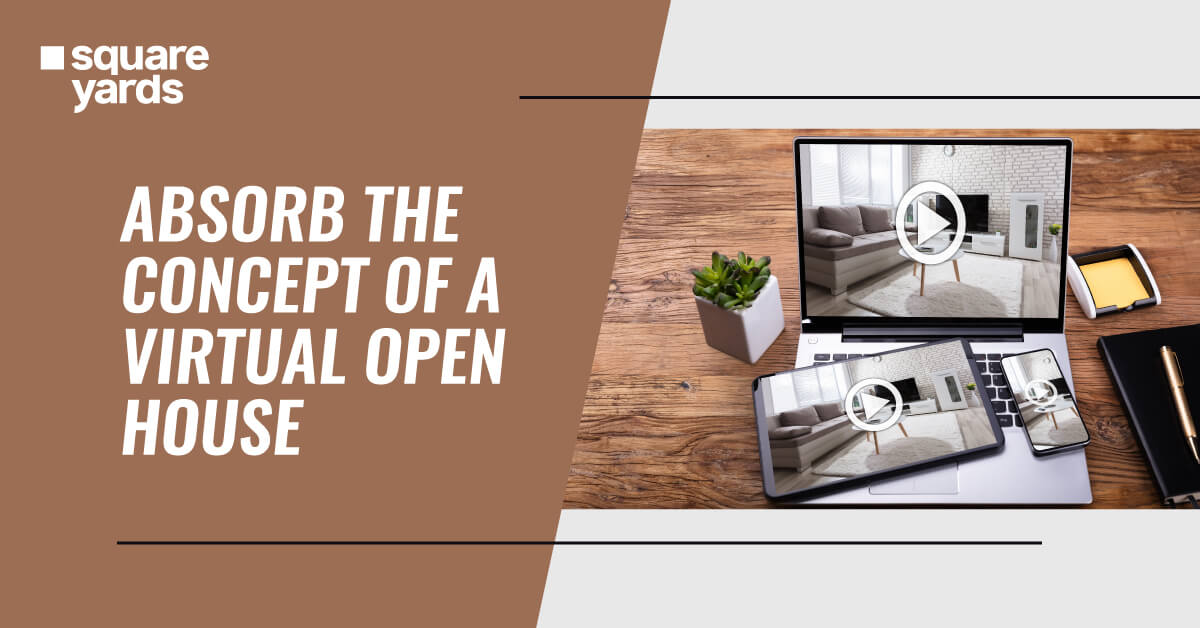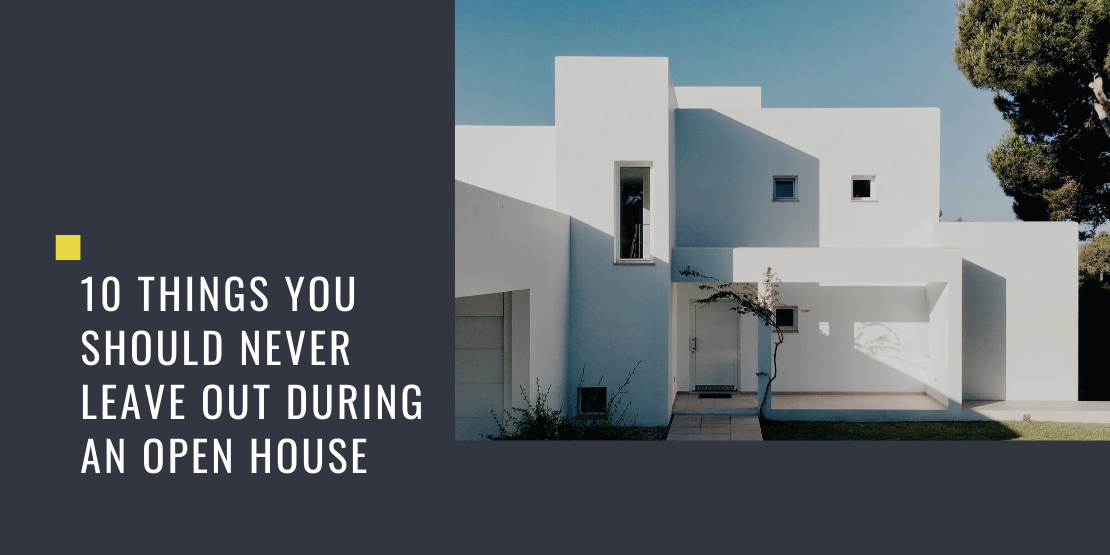In the dynamic world of real estate, Virtual Open Houses have emerged as a transformative tool. It bridges the gap between traditional property viewings and modern digital convenience. These online events leverage cutting-edge technology to offer potential buyers and tenants an immersive experience. From their inception, Virtual Open Houses have revolutionised how properties are showcased, breaking down geographical barriers and easily accommodating busy schedules. This blog explores the essential features of virtual open house platforms, tips for finding the best platforms and creative ideas to enhance engagement during events. Join us as we enter the world of Virtual Open Houses.
Why to Host a Virtual Open House?
The traditional open house has transformed into the virtual realm in today’s digital age. Here’s why hosting a virtual open house can be a game-changer for your event strategy:
Global Accessibility
Gone are the days of limiting your event to a local audience. With a virtual open house, physical presence is no longer a barrier. Prospective attendees from around the globe can join with just a click. This global reach expands your event’s exposure and attracts a diverse pool of participants interested in what you offer.
Budget-Friendly Solutions
Say goodbye to hefty venue rentals, catering costs, and logistical nightmares. Virtual open houses are remarkably cost-effective. You save on travel expenses and the need for physical setups, channelling those resources into enhancing the virtual experience. It’s a savvy financial move without compromising on engagement.
Convenience for All
Attending an event from the comfort of your home or office is a dream come true. Virtual open houses offer unparalleled convenience. Participants can join effortlessly, making it easier for busy professionals and international guests to engage with your content on their own schedule.
Interactive Engagement
Unlike static webinars or traditional listings, virtual open houses are dynamic interaction hubs. Live chats, Q&A sessions with experts, and immersive virtual tours bring your content to life. Attendees actively explore, ask questions, and connect with hosts and other participants.
Data-Driven Insights
One of the standout advantages of virtual platforms is the wealth of analytics they provide. Detailed metrics on attendee behaviour, engagement levels, and content interaction help you gauge the success of your event in real time.
Recipe To Host a Perfect Virtual Open Day
Hosting a virtual open day is more than just an event—it’s an opportunity to connect with your audience. Here’s how you can create an engaging and memorable virtual experience:
Define Your Purpose and Plan Ahead
Start by setting clear goals for your virtual open day. Are you aiming to attract prospective students, highlight property features, or introduce a new service? Planning ahead ensures you structure your event effectively.
Choose the Right Platform
Select a user-friendly virtual event platform that supports interactive features like live chats, Q&A sessions, and virtual tours. Platforms like vFairs or Zoom Events offer tools to create immersive experiences that resonate with attendees.
Craft Content That Tells Your Story
Capture attention with engaging content that showcases what makes your institution or property unique. Include virtual tours, live expert presentations, and interactive booths allowing attendees to explore and interact. Each piece of content should paint a vivid picture and evoke curiosity.
Spread the Word with Passion
Promote your virtual open day enthusiastically across various channels—email campaigns, social media, and your website. Use visuals and compelling messages to convey why attendees shouldn’t miss out. Make registration effortless to encourage maximum participation.
Engage Attendees
During the event, foster a sense of community and excitement. Encourage interaction through live polls, networking sessions, and real-time feedback. Create opportunities for attendees to connect with each other and with your team, building genuine interest and trust.
Follow Up
Show gratitude to attendees with personalised follow-up emails, session recordings, and additional resources. To sustain interest and loyalty, continue nurturing leads and relationships developed during the virtual open day.
Features of Virtual Open House Platform
Here are the core features of a virtual open house platform:
-
- Virtual Environment: It offers a digital space where participants can explore properties or attend events remotely.
- Live Presentations: Hosts real-time presentations, seminars, or webinars for engaging with attendees.
- Interactive Tools: These include features like chat rooms, Q&A sessions, and polls for participant interaction.
- Content Sharing: Allows the sharing of videos, documents, and presentations to showcase properties or information.
- Scheduling and Registration: Manages event schedules and attendee registrations online.
- Analytics and Reporting: Provides insights into attendee engagement and event performance metrics.
- Security and Access Control: Ensures secure session access and protects participant data.
- Technical Support: Offers assistance for smooth event operation and troubleshooting.
Few Ideas to Start Your Virtual Open Day
By incorporating these captivating ideas, you can create a dynamic online experience that attracts potential buyers and sets your listing apart.
Interactive Property Tours
Immerse viewers in the property with high-quality 360° virtual tours. Interactive hotspots highlight key features and room layouts, allowing potential buyers to explore at their own pace. Complement the tour with pre-recorded videos showcasing the property’s best features, like stunning views, desirable amenities, or unique architectural details.
Informative Presentations
Go beyond basic photos with informative presentations. Create a video spotlighting the surrounding neighbourhood, including nearby shops, restaurants, and attractions. Offer interactive floor plans with detailed measurements and the ability to virtually “walk through” the space, giving viewers a true sense of the layout and potential.
Gamification and Incentives
Make your virtual open house interactive and fun! Design a virtual treasure hunt within the 360° tour, where viewers can search for clues and information about the property. Offer a fun quiz related to the property or neighbourhood, with a chance to win a virtual gift card or other incentives for participating. These playful activities enhance engagement and gather valuable data about visitor interest.
Personalise the Experience
Allow viewers to register for the virtual open house with their contact information, enabling the realtor to follow up with personalised communication. Offer the option to schedule private virtual tours or video calls with the realtor for a tailored experience. Streamline the process by allowing the realtor to share key documents, like disclosures or floor plans, directly during the virtual open house.
Know How to Find the Best Virtual Open Day Platforms
Following are some tips to help you find the best virtual open-day platform:
-
- Feature Evaluation: Assess platforms using essential features like virtual environments, live interaction tools, and attendee engagement options.
- User Reviews: Check platforms on review sites like G2 and Capterra to gauge user satisfaction and performance.
- Budget Consideration: Determine your budget and find platforms that offer suitable features within your financial constraints.
- Technical Support: Ensure the platform provides reliable technical support before, during, and after the event to handle any issues.
- Demo and Trial: Request demos or trials to test usability, interface intuitiveness, and overall user experience.
- Integration Capabilities: Look for platforms that integrate well with your existing systems or tools, such as CRM.
- Security Features: Prioritise platforms with robust security measures to protect attendee data and ensure safe interactions.
You May Also Read :
|
Guide To Open House Etiquette in Canada |
|
|
Explore Open Houses in Canada |
|
|
Understand Housesigma Canada |
|
|
Concept of Laneway House in Toronto |
Frequently Asked Questions (FAQs)
What’s the difference between a Virtual Public and a Virtual Broker?
Virtual Public is open to all kinds of platforms. It is often used for large events or webinars with broad audiences. On the other hand, the virtual broker is only for one pre-register for the sessions. They are designed for specific clients or groups, such as real estate viewings.
How would I create a Virtual Open House link?
Set up your event on a platform like vFairs. The platform will provide you with a unique link to share with attendees.
Do Virtual Open Houses syndicate to other websites?
Yes, virtual open houses can be syndicated to other websites. Platforms offer embed codes or links for sharing on real estate listings and social media.
What’s the difference between a Virtual Open House and a Virtual Tour?
Virtual open houses are scheduled events where attendees interact live with hosts and others. A virtual tour is a pre-recorded or interactive property tour, accessible anytime, not necessarily scheduled or interactive. These events are totally different from each other in terms of experience.






























